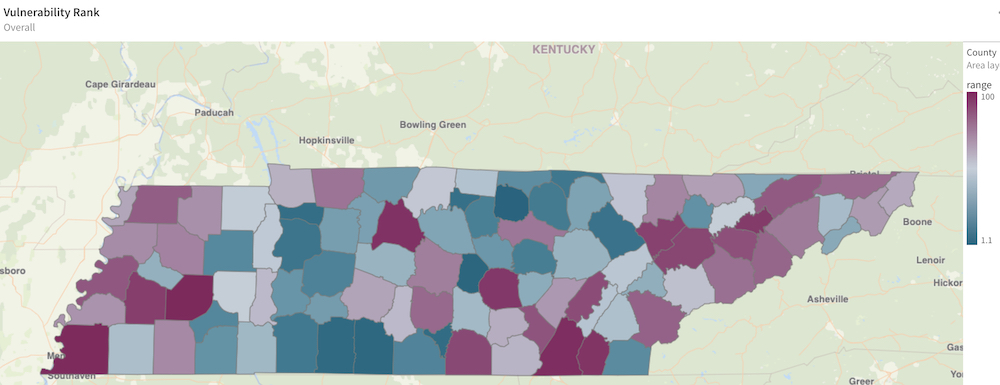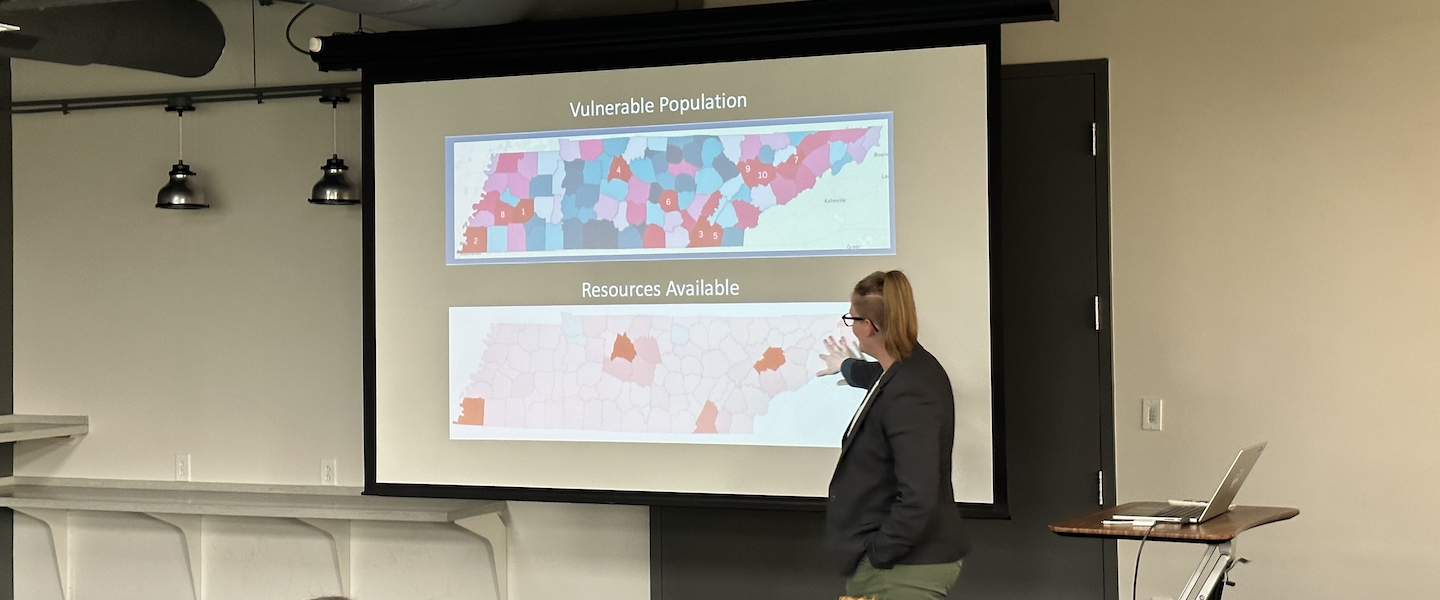Innovative data model gains national attention, poised to transform anti-trafficking efforts across United States
In a groundbreaking collaboration, Belmont University's Data Collaborative (BDC) has joined forces with Engage Together, an organization working to end and prevent human trafficking in all its forms, to develop innovative data-driven solutions in the fight against human trafficking. This partnership, which began 18 months ago, has already made significant strides in Tennessee and is poised to expand its impact across the United States.
Working to strengthen community responses to all forms of human trafficking, Engage Together has been working with the Tennessee Bureau of Investigation's (TBI) Human Trafficking Task Force and the Tennessee Counter Trafficking Alliance (TCTA) on its most current project in Tennessee.
The collaboration with BDC arose from a crucial need identified by Founder and CEO of Engage Together Ashleigh Chapman: the ability to illuminate the precise vulnerabilities that traffickers are likely exploiting within each and every community across the state.
Chapman explained the transformative nature of their approach. "I had been searching for a way that we could accurately render the data in such a way that it would showcase which communities are at higher risk for trafficking and why. Marrying that picture against our assessments of responses at a community-level, well, that's powerful. That's transformative really."
The BDC rose to this challenge, creating a tool that has had a significant impact in visualizing vulnerability data alongside community response information, providing a comprehensive picture of both risks and resources in each county.
Tommy Strickler, data analytics manager for the BDC, emphasized the importance of this community-level approach. "The novel approach that we're taking with our work with Engage Together is that from a community perspective, going in and helping mobilize individuals, organizations, businesses and governmental agencies, to see the role that they can play in helping stop human trafficking completely in their community."
Chapman said when the team presented this new model to stakeholders and participating agencies, there was palpable energy in the room. She explained, "You have a sense for what's going on when you're serving your community, such as a law enforcement official, a nonprofit director, a Department of Children’s Services leader, but to see the data laid out like that truly is powerful. This has never been done before; it was revolutionary."

The success of this model has caught the attention of federal lawmakers. U.S. Senators Marsha Blackburn and Amy Klobuchar have introduced a bill that would create a National Human Trafficking database, housed at the Federal Bureau of Investigation, potentially scaling this approach nationwide.
"They felt that this kind of model needed to be nationally available," Chapman explained. "We've provided guidance on that bill, and we're excited to see where it goes. If it passes, the database with the FBI would streamline data collection efforts in each state and strengthen each community's data-driven insights and response strategies." She added optimistically, "I think Belmont and Engage Together will have hopefully 50 states to support soon."
Looking ahead, the partnership between BDC and Engage Together will continue to support the TBI and TCTA in Tennessee and is set to expand to other states, including Florida, Texas and Montana. Additionally, they are pursuing a federal grant to conduct a five-year study on the histories of trafficking survivors in Tennessee, which will provide even deeper insights into vulnerability factors.
The collaboration also extends to addressing critical gaps in healthcare. Chapman said, "90% of victims of trafficking in the U.S. are presenting themselves to local healthcare settings many times, and they're not identified as victims of trafficking." To address this, Chapman is continuing to work with the BDC in developing plans to equip healthcare providers with the knowledge to identify potential victims.
For Chapman and Engage Together, providing information is just the first step. "We don't want to give people information about an issue and not invite them to become part of the solution," she stated. "Everything we do in Engage Together is to hopefully drive action."
One such step in being part of the solution is to gather education and resources from Engage Together’s Justice U course series. But the role of universities in this fight is also crucial.
"Universities are phenomenal conveners and collaborators with the community," Chapman explained. "They can take on those deep dive research projects, whether it's faculty-led or from a center like the BDC. Universities can bring resources, energy and thought leadership around something that direct service providers, who are always triaging so much, wouldn't have the resources or bandwidth to put to it. That's such a great partnership.”
This partnership exemplifies Belmont’s commitment to addressing complex social issues through data-driven approaches and community engagement. As the project continues to grow, it promises to make a significant impact in the ongoing fight against human trafficking, demonstrating the power of collaboration between academia, non-profits and government agencies.
Learn More
Find ways to get involved in your community.

